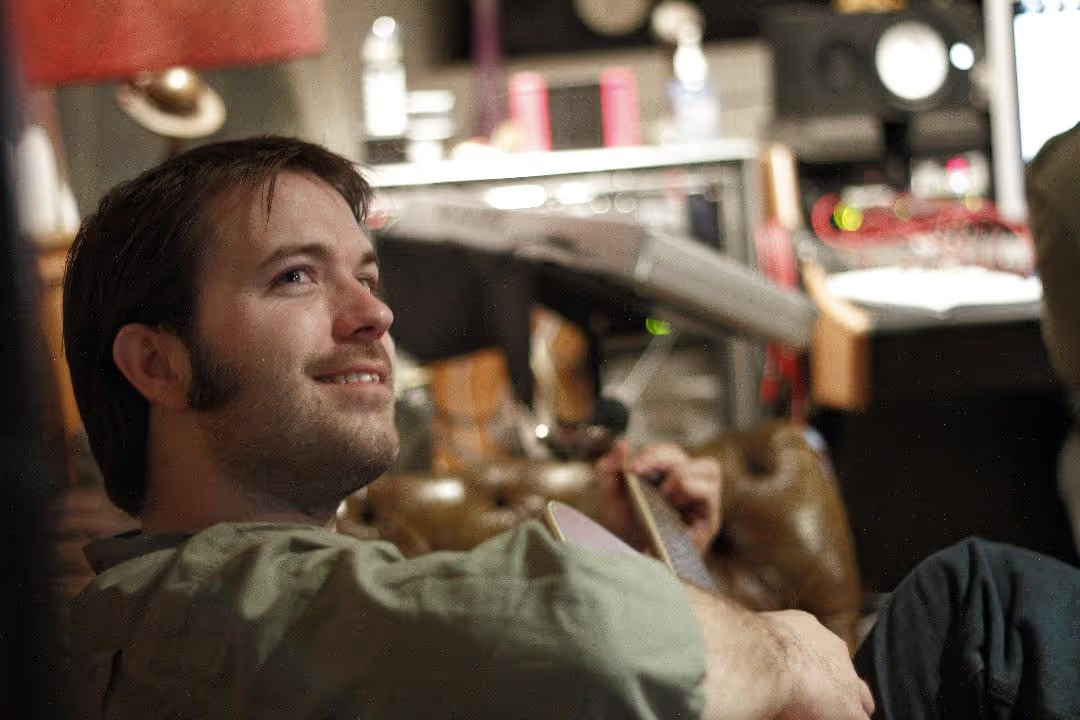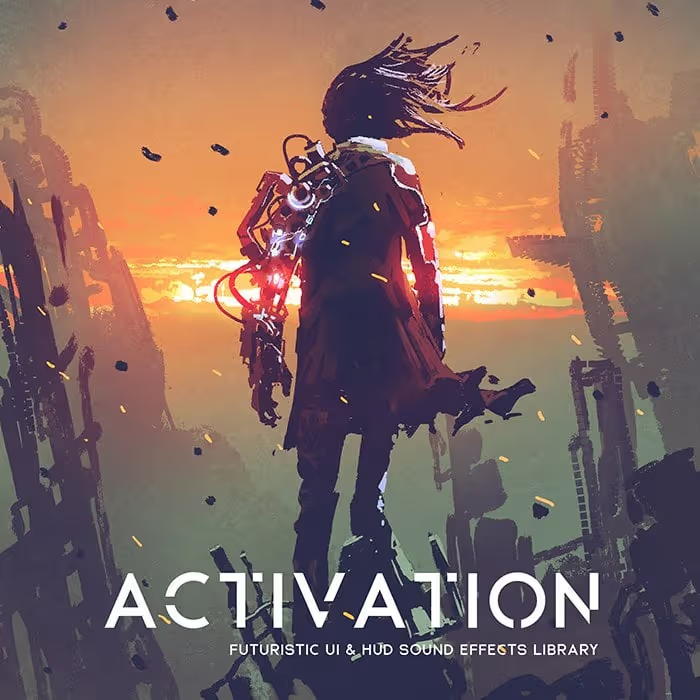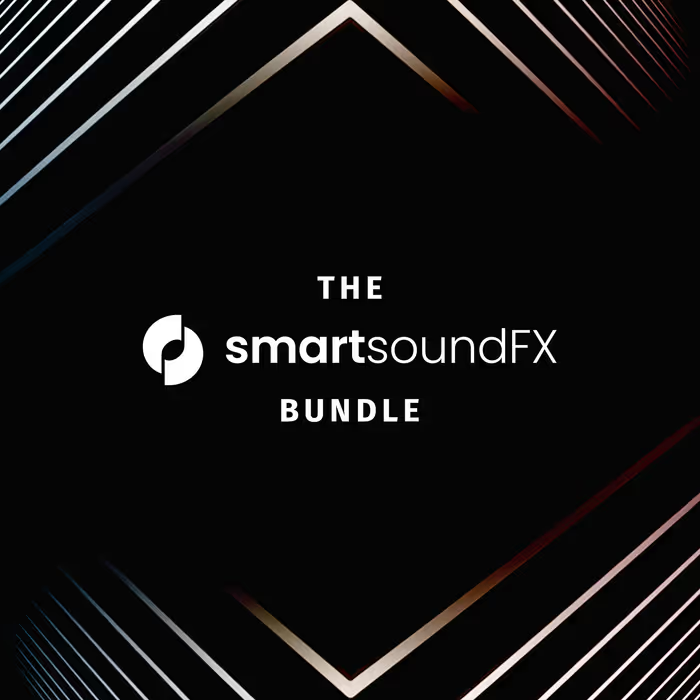That's what Doug Siebum set out to find out with this interview, centered around the topic of 'subversion': Here, he speaks with William McGuigan who has been doing post sound for over 12 years and is the proud owner of Gypsy Sound in Los Angeles. His credits include Chef's Table, The Kings of Summer, You're the Worst, Stan Against Evil, and, through Skywalker Sound, Kong: Skull Island.
Doug Siebum (DS): Hi William, thanks for making the time to join us today. Can you tell us about your history? What first got you interested in sound for television and film?
William McGuigan (WM): My start in post sound is much like most people, through music. I went to audio school with the hope that I could combine my music background with my aptitude for tech. I thought I could live the life of a rock star — without having to actually be one. I worked at a few music studios, getting to work on a good balance between large format, orchestral, and big band work, and then smaller hip hop and rock sessions. As the financial realities of life were catching up with me, I started looking beyond. Luckily I got hooked up with a commercial post house in Venice, California called Ravenswork. It was a small boutique, commercial mix post house. It was a very small tight knit company, that showed me that there was room in the post production world for something smaller, unique, and personable.
I knew that I wanted to find a balance between the lifestyle and vibe of music studios with the professionalism and stability of a post studio
I was lucky to get that opportunity and really enjoyed my time there. After I moved on from Ravenswork, I freelanced and worked at a few different places. I knew that I wanted to find a balance between the lifestyle and vibe of music studios with the professionalism and stability of a post studio. I think partially to my benefit and partially to my detriment, I wound up starting my own place early on, before I was able to learn the systems and workflows of one of the major studios. So I had to develop my own techniques and workflows, which seems to be the way a lot of people have to do it these days.
DS: Why did you decide to start your own business?
WM: I guess because I didn’t find another small boutique company that fit my pace right away. I don’t know why. [laughs] A couple of friends and I had been working some freelance gigs together. It was sort of an attempt to combine forces. That’s kind of where the name Gypsy Sound came from. We were a bunch of people that would band together for bigger projects, while simultaneously handling all of our own little things. We pooled our skills and resources to make Gypsy Sound.
DS: Can you talk a little about the early years of your business? Did it take you a little while to find your place in the world?
The biggest difficulty is that in order to do a mix properly, there’s no way around really having the room, the gear, and the space to do it.
WM: We had a couple of clients that gave us a bit of a launching pad. It was definitely difficult. I started out on a Mac Mini and an M Box. That obviously has it’s own challenges. By no means was it easy, but I think we got lucky, because we found a really good, loyal network early on. When we started, I was working on one of the first shorts of a director that I still work with today. A few of the people that came to us when we first got started, have been loyal throughout and have kept us fairly busy. The biggest difficulty is that in order to do a mix properly, there’s no way around really having the room, the gear, and the space to do it.
Chef’s Table is one of the shows that Gypsy Sound has worked on
DS: At the time of inception and up to now, how has your business model differed from the larger post houses?
WM: It mainly differs in that we sort of operate both as freelance mixers and engineers as well as an independent post house, so there are other studios that we each work with. We don’t view other studios as competition so much as partners in trying to get a project done. I’ll four wall at another studio for some projects, or work with other designers or editors.
We don’t view other studios as competition so much as partners in trying to get a project done
It’s also different because we can be slightly more selective about our work. Maintaining a smaller business allows us to not necessarily have to take on every project that comes to us.
DS: Right, because you have a lower overhead.
WM: Yeah, there’s the lower overhead factor and then there’s the capacity factor. With 5 or 6 people, we’re maxed out on space here. If we have to, we can expand out to other editors working offsite, but at a certain point, you don’t want to sacrifice the time put into each project just to be able to say that you did more. So there’s definitely some projects that we are able to pass on and instead are able to do the ones that we’re excited to work on.
DS: What did you want to try differently from the traditional business model?
WM: It’s not my favorite word, but the idea of being a boutique and approaching a project as a partner or team member. It’s a lot easier to feel like a team with the production and the director when it’s a smaller crew. The angle that I lean into with this place, is that you know everybody working on the project; we all work on it with the director and producers as a complete team. I think that builds a stronger relationship.
DS: Can you tell us about your workflow?
WM: Typically there’s a core team of 4 or 5 of us here. Then depending on the schedule there are several other editors or and designers that we sub out to. Nikola Simikic or I supervise projects that come in, and walk it through the process from creative through delivery. Our ability to expand and contract allows us to create a different workflow for each project.
DS: What are some of the shows that you’ve worked on?
WM: You’re the Worst for FX was a really fun one that just ended. Chef’s Table and Street Food Asia are currently on Netflix. I’ve done a lot of docuseries including not only the two I just mentioned, but also 7 Days Out, and Larry Charles’ Dangerous World of Comedy. I also worked on Stan Against Evil on IFC and lots of cool Indie films.
DS: Do you have a favorite show or a biggest show that you worked on?
WM: Chef’s Table is probably the one that I get recognized for the most. We worked on You’re the Worst for 5 seasons. All of us really enjoyed working on it a lot; it was really special to us. The biggest feature that I worked on was Kong, but that was through Skywalker Sound, not Gypsy Sound. We get such a good balance of different things, it’s kind of hard to pick a favorite. Kings of Summer is a feature that holds a special place in my heart, because I was getting the facility and building out my rig. Band of Robbers was another movie that we had fun with, A Thousand Junkies was also a lot of fun… It’s really tough to pick just one favorite! Each project holds a little special place in our hearts.
Through Skywalker Sound, William McGuigan worked on Kong: Skull Island
DS: How big is the typical crew size on one of your shows?
WM: We’re typical a crew of 4. I’ve had it expand to anywhere between 7 and 9 people. That’s usually when we have several different projects at the same time. On a single project, I think the largest we’ve gone is 5 or 6 people.
DS: Can you talk about building relationships with clients?
WM: I think it goes back to not being too big of a place. I think one thing that our clients appreciate is coming in and knowing everyone in the facility. I think that gives us a lot of returning client value. The majority of my clients have become my friends. We’re all part of a similar network of people, so it seems like most of my clients know each other as well.
[tweet_box]William McGuigan from Gypsy Sound talks about starting his own post house[/tweet_box]
DS: How did you get plugged into that network?
WM: Its all word of mouth and via relationships with other Editors, Composers, Producers, or Directors. As I do a project for one person they might recommend me to somebody else they work with. As each of those clients grow, so does their network etc.
DS: What was the hardest thing about starting a business?
The biggest thing right now that independent houses are dealing with is upgrading their security. Especially if you want to work on bigger budget projects, you really need to have network security down.
WM: The hardest thing I think, was finagling lower budgets, hustling favors, and just trying to make things work in the early stages. Having the confidence to do it really. It’s tough to start your own thing, when you barely know what you’re doing. Trying to learn how to do the whole business thing, while, at the same time, mastering a craft – that’s pretty tough. You’re learning a lot of it by yourself, through trial and error. Making big leaps like investing in a facility or gear, having the confidence that you’re going to have the work to keep everything going. Taking that risk is pretty tough. The biggest thing right now that independent houses are dealing with is upgrading their security. Especially if you want to work on bigger budget projects, you really need to have network security down. That’s a whole other investment. It’s one thing to learn the gear and tech for the craft. It’s another thing to also have to learn the gear and tech for the networking and security authorization that a lot of clients are starting to expect.
DS: Yeah, it’s like you need to bring in an IT guy to do it or learn it all yourself.
WM: Right, I wish it was one or the other. But even if you bring in an IT guy, you should know the basics of what’s going on.
DS: Is there anything else that you would like to add?
WM: The idea is to not view anyone as competition as much as resources to learn with and grow with. There’s enough work to go around.
Power Lists - essential audio resources and insights:
• The Sound Design Power List
• The Game Audio Power List
• The Film Sound Power List
Succeed in sound:
• How to Set (and Get) the Right Price for Your Audio Work
• 10 Essential Tips for Game Audio Freelancers
• How to be a successful sound designer – with Scott Gershin
• How To Actually Live as an Audio Freelancer – by Melissa Pons
• How to set your sonic creativity free & overcome creative inhibitions – by Mark Kilborn
• 5 Useful Tips for Upcoming Sound Designers and Sound Editors
• Sound Opinions: How to get game audio pricing right
• Building a successful audio post studio – with Kate Finan and Jeff Shiffman
• Rebuilding your studio: Goals, tips and lessons learned
• Creating audio for games – with Martin Stig Andersen
• A life in sound: How to foster creativity and protect yourself from burning out – with Chance Thomas
• Better audio work habits: How a Wacom Tablet can help reduce the risk of Repetitive Strain Injury (RSI)
• Better audio work habits: How a sit & standing desk can reduce your sedentary studio life
• Tips and thoughts on running your own audio post production house – with William McGuigan
• 30+ year audio veteran Andy Greenberg, on building client relationships in the advertising industry
• 7 Sound Alternatives to Working For Free
• Audio Outsourcing Success: Essential Tips, Thoughts and Working Practices from Adele Cutting
• How to succeed in UI/UX Sound Design, ADR Recording, & Audio Programming
• How to succeed in sound design for Film, Documentaries, and Trailers
• How to succeed in sound design for Games, Animation, and Television
• How to succeed in Field Recording, Foley, and Teaching Sound
• How to succeed in Audio Branding, Music Editing, and sound for VR
• How to succeed in Theater Sound Design, Podcast Sound Design, and Podcast Production
• How to succeed in Sound Editing, Sound for Advertising, and Production Sound
• How to succeed in Sound Editing, Sound for Advertising, and Production Sound
• The Composer Success Series: Composing for Film – ft. Pinar Toprak, Nainita Desai, & Jonathan Snipes
• The Composer Success Series: Composing for TV – ft. Charlie Clouser, Sherri Chung, & Cindy O’Connor
• The Composer Success Series: Composing for Theatre – ft. Elyssa Samsel, Kate Anderson, and Daniel Kluger
• The Composer Success Series: Composing for Games – ft. Inon Zur
• The ‘Quit Aspiring’ book – by Adam Croft
• How to get hired in game audio – thoughts and insights from your potential employer’s perspective
• Why gear is not the ticket to entry in the game audio community
• 4 Effective Ways to Break into Game Audio
• Tips for Creating a Perfect Resume for Audio Industry Jobs
• Yet Another Game Audio Hiring Article – by Ariel Gross
• 5 Tips for Getting a Job in the Audio Industry
• Applying for a job in game audio – by Matthew Florianz
• Freelance Game Audio: Getting Started and finding work – by Ashton Morris
• How to get started (and make it) in game audio – 10+ fundamental questions answered by Akash Thakkar
• Courses: How to network and get paid for your work in the game industry – by Akash Thakkar
• How to Craft a Perfect Cover Letter for Audio Industry Jobs
• Get the weekly Audio Jobs newsletter
• Join the Audio Jobs Facebook group
• Upload your demos to Soundcloud
• Upload your demos to ReelCrafter
• Find interesting audio events around the world
• Find other audio pros around the world
• How to prepare for – and power through – a layoff in the game audio industry, with Brian Schmidt:
• How to Survive a Game Audio Layoff – insights from Damian Kastbauer
• What it’s like to be laid off from your video game studio
• What To Do Before and After Being Laid Off
• Facebook Group: Survival Skills for Creatives
• How To Learn Game Audio Online – A talk with Game Audio Educator Leonard Paul
• Hear the very best podcasts about sound
• Read the 100s of sound stories and guides on the A Sound Effect blog (search for stories here)
• Browse Industry Data: Game Music and Sound Design Salary Survey Results
• Browse 100+ Sound Design Guides
• Find essential books about sound – for film, games and audio post production
• Get tips and ideas for making your own sound effects
• Use the Audio Events Calendar to find audio-related events around the globe
• Get a steady stream of great sound stories from the community
• Discover 1000s of sound libraries from the independent sound community
• Take online courses in Wwise, FMOD Studio, Unity, Pure Data & Unreal at the School of Video Game Audio
• Sound effects survey results: Here are 90+ ideas for new SFX libraries
• How to create an indie sound bundle
• The quick-start guide to adding sound FX library metadata





